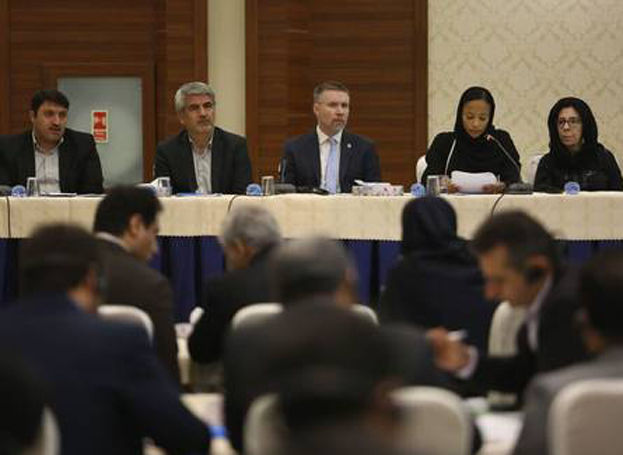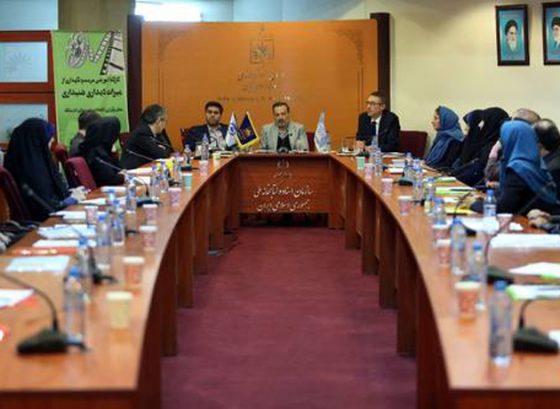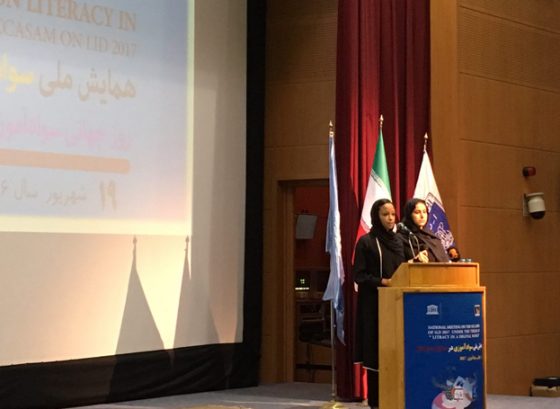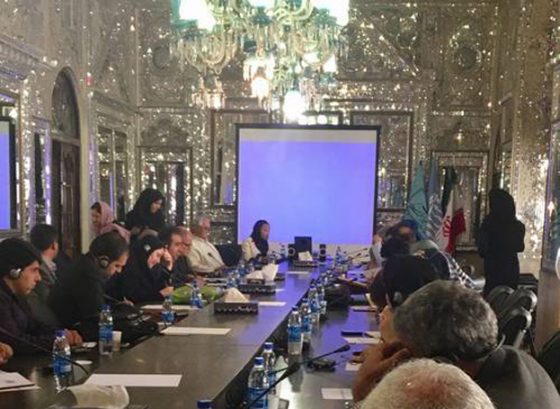Iran’s Ministry of Education, UNESCO, UNICEF, and the Iranian National Commission for UNESCO Organize Workshop on Out-of-School Children

A two-day technical Introductory workshop on the Out-of-School Children Initiative (OOSCI) began today in Tehran attended by a wide range of education experts from several governmental bodies, including the Ministry of Education, Ministry of Cooperatives, Labour and Social Welfare, the State Welfare Organization, and the Budgetary and Planning Organization, AVA Diplomatic reports.
The workshop was organized jointly by the Ministry of Education, the UNESCO Tehran Cluster Office, the Iranian National Commission for UNESCO and the UNICEF Iran Office, based on the outcomes of a joint Global Initiative on Out-of-School Children, launched by UNICEF and the UNESCO Institute for Statistics (UIS) in 2010 to achieve a breakthrough in reducing the number of out-of-school children.
Ms. Dina Craissati and Mr. Haogen Yao, Education Specialists from UNICEF’s Middle East and North Africa (MENA) Regional Office traveled to Iran to facilitate the workshop.
In the opening ceremony, Dr. Will Parks, UNICEF Representative in Iran referred to the latest statistics released by the UNESCO Institute of Statistics on out-of-school children and said: “Today as we speak, globally 263 million children, adolescents and youth between the ages of 6 and 17 are out of school, of which 61 million children are aged 6 to 11 and 60 million are 12 to 15 plus the first ever estimate of those of upper secondary school aged 15-17 years set at 142 million.”
Dr. Parks highlighted the different groups of children who are more likely to fall out of education, including children from the poorest families, girls, children in rural areas, children in emergency situations, such as war or natural disasters, and children with disabilities.
UNICEF’s Representative appreciated the efforts of the Ministry of Education for its current initiatives to reduce the number of out-of-school children and prevent further drop-outs.
In her opening remarks, Ms. Esther Kuisch Laroche, Director and Representative of UNESCO Tehran Cluster Office said: “Although the global number of children who are excluded from education fell steadily in the decade following the year 2000, the most recent data shows that this progress has essentially stagnated in recent years.” She highlighted the role of educators in ensuring lifelong learning and providing out-of-school youth with opportunities to achieve their full potential and contribute to their communities.
“Non-formal education activities provide out-of-school children and youth access to structured learning, reinforce their self-esteem and help them find ways to contribute to their communities”, said Ms. Kuisch Laroche. She added: “Such educators provide learning opportunities through community centres, religious organizations, technical and vocational training centres, literacy programmes, sports and arts programmes.” The UNESCO Representative also highlighted the potential of the use of ICT in reaching out-of-school children and youth.
In his speech, Dr. Nasiri, Secretary-General of the Iranian National Commission for UNESCO, highlighting the importance of providing accurate data on out-of-school children with the help of all stakeholders involved said: “We should bear in mind that improving access to education is not enough. We also need to focus on maximizing the effect of quality education.”
Mr. Hosseini, Deputy for International Affairs of the Ministry of Education, talked about the efforts of the Ministry of Education to prevent school drop-outs and reduce the number of out-of-school children, using a variety of strategies such as multi-grade rural classes, single-student schools, boarding schools, distance learning, various methodologies of the Literacy Movement Organization and improving the quality of public education.
The OOSCI training workshop is expected to help advance Iran’s national education goals as stated in the Fundamental Reform Document of Education and the 6th Five-Year National Development Plan.
During the two-day workshop, participants will discuss a variety of topics, such as tools and methodologies to fill the data gaps in identifying out-of-school children; monitoring progress towards universal primary education; as well as measuring the scope of -and assessing the reasons for- exclusion.




